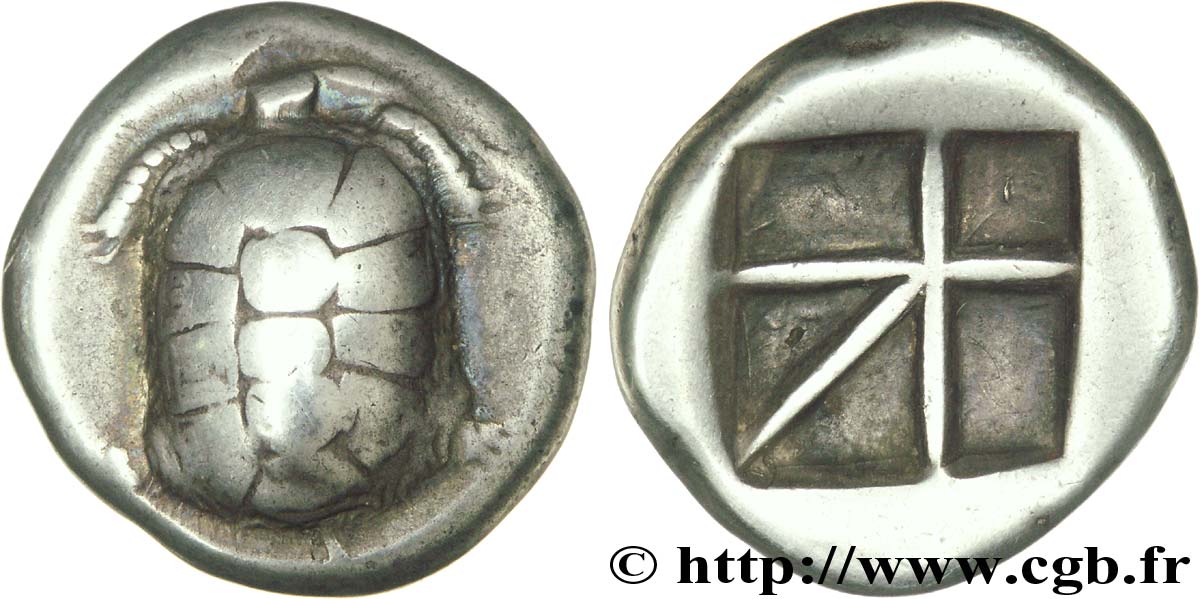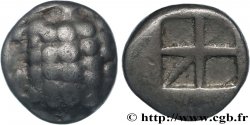v29_0026 - AEGINA - AEGINA ISLAND - AEGINA Statère
MONNAIES 29 (2007)
Starting price : 550.00 €
Estimate : 850.00 €
Realised price : 1 000.00 €
Number of bids : 8
Maximum bid : 1 045.00 €
Starting price : 550.00 €
Estimate : 850.00 €
Realised price : 1 000.00 €
Number of bids : 8
Maximum bid : 1 045.00 €
Type : Statère
Date: c. 400 AC.
Mint name / Town : Égine
Metal : silver
Diameter : 22 mm
Orientation dies : 6 h.
Weight : 11,91 g.
Rarity : R1
Coments on the condition:
Flan large et complet. Petite faiblesse de fabrication au droit avec une usure superficielle sur la carapace de la tortue. Très beau carré creux. Une jolie patine avec des reflets mordorés recouvre cet exemplaire
Catalogue references :
Obverse
Obverse legend : ANÉPIGRAPHE.
Obverse description : Tortue terrestre vue de dessus.
Reverse
Reverse legend : ANÉPIGRAPHE.
Reverse description : Carré creux divisé en cinq compartiments.
Commentary
La fabrication des “tortues” s’interrompit quant Athènes occupa Égine à partir de 431 avant J.-C. Quand la cité fut libérée en 404 avant J.-C., elle recouvra sa liberté et reprit la fabrication monétaire. Notre statère pourrait avoir été fabriqué à ce moment. La tortue terrestre semble encore archaïque tandis que le carré creux est déjà fin et élégant. Ce statère serait alors une pièce de transition.








 Report a mistake
Report a mistake Print the page
Print the page Share my selection
Share my selection Ask a question
Ask a question Consign / sell
Consign / sell
 Full data
Full data
